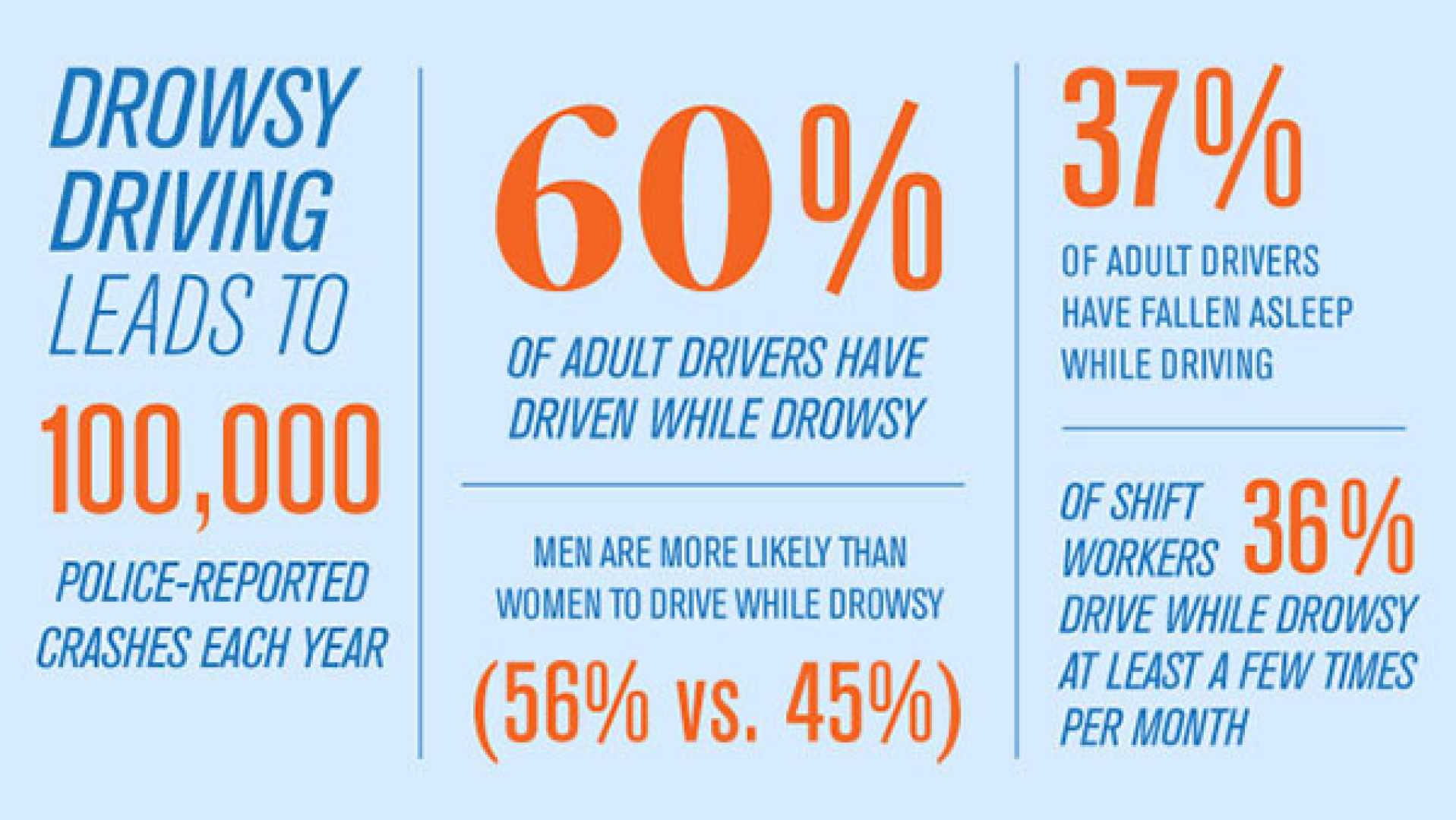News
Survey: 14% of Americans Admit to Drowsy Driving

ERIE, Pa., April 1, 2025 /PRNewswire/ — A disturbing new survey by Erie Insurance reveals that 14% of Americans have confessed to falling asleep at the wheel, raising significant safety concerns as the nation observes National Distracted Driving Month in April. This alarming figure highlights a troubling trend, with data indicating an increase in drowsy driving incidents since 2020.
The survey found that over half of Americans, approximately 54%, are not obtaining the recommended seven hours of sleep each night, with 11% reporting they sleep four hours or less. The majority, 43%, average only five to six hours, a level of rest that the Centers for Disease Control and Prevention warns can impair driving performance.
“Sleep deprivation can dramatically affect cognitive function and alertness behind the wheel,” said Erie Insurance representative John Doe. “It’s essential for drivers to recognize the connection between adequate rest and road safety.”
Many Americans find themselves drowsiest during late-night driving hours, specifically between 10 p.m. and 3 a.m., when 42% of drivers reported feeling most fatigued. An additional 23% reported significant drowsiness between 3 a.m. and 10 a.m. This circadian rhythm disruption, caused by driving during the night, reflects a broader public health issue linked to inadequate sleep patterns.
Erie Insurance outlines that sleep-deprived drivers can quickly become dangerous behind the wheel as insufficient rest reduces their reaction times and overall concentration. The average car weighs more than 4,000 pounds, creating catastrophic potential when a driver is unable to stay alert.
The occupation of driving itself serves as a significant factor in the survey, with 25% of respondents stating that it is a core responsibility of their jobs. This demographic includes professions such as truck drivers and gig economy workers who must navigate the streets irrespective of their sleep habits.
The survey also highlights various methods drivers use to combat drowsiness while on the road. Of those surveyed, 63% reported drinking caffeinated beverages, 62% cranked up the volume on their music, and 58% resorted to rolling down windows to remain awake. Interestingly, around 59% of drivers acknowledged taking rest breaks, which could enhance safety by serving as a preventative measure against potential accidents.
Despite these efforts, strategies like talking on a cell phone, utilized by 32% of women and 23% of men, have been cautioned against by Erie Insurance due to their potential to cause distractions while driving.
The survey further explores the reasons behind Americans’ sleep deficits. Nearly half of respondents (48%) confessed to struggling with sleep. Major factors attributed include personal and family stress (52%), anxiety over current events (42%), excessive social media usage (24%), and parental responsibilities (14%). The average American spends over five hours daily on their phones, with screen exposure linked to disrupted sleep patterns due to blue light interference.
“With the ongoing stress from recent events, it is crucial for individuals to prioritize their sleep health,” said Doe. “We encourage the public to adopt better sleep habits and limit nighttime screen time.”
To combat the drowsy driving epidemic, Erie Insurance urges individuals to implement strategies such as consistent sleep schedules, reducing screen time before bed, and utilizing relaxation techniques to enhance sleep quality.
About Erie Insurance: Based in Erie, Pennsylvania, Erie Insurance Group ranks as the 12th largest homeowners’ insurer and 13th largest automobile insurer in the United States. Founded in 1925, Erie Insurance has more than 7 million policies in force and operates across 12 states and the District of Columbia. For additional information, visit Erie Insurance’s website.












